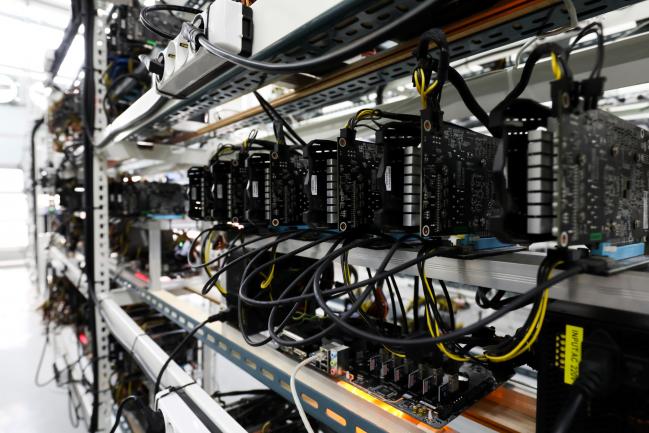(Bloomberg) -- South Korea’s government gave the strongest signal yet that it will allow cryptocurrency exchanges to keep operating in the country, a welcome development for traders who had feared an outright ban in one of the world’s biggest markets for digital assets.
Policy makers will focus on making cryptocurrency trading transparent rather than outlawing it altogether, Hong Nam-ki, minister of the Office for Government Policy Coordination, said in a video a posted on the presidential website. It was the government’s first coordinated response to the public uproar over a justice ministry proposal in December to shut digital-asset exchanges.
Talk of a ban in Korea had rattled traders around the world, fueling concern that the country might cut off a key source of demand for Bitcoin and its peers. Regulators globally are grappling with how to respond to the cryptocurrency boom, with responses ranging from an exchange ban in China to a licensing system in Japan. Korea appears to be leaning toward a more permissive approach than was once feared.
Why the Cryptocurrency World Is Watching South Korea: QuickTake
Hong clarified the government’s position after more than 200,000 Koreans backed a petition on the Blue House website of President Moon Jae-in denouncing the justice ministry’s proposal. Korea’s system is similar to that of the U.S., where petitions that gather enough signatures elicit an answer from the White House.
Hong said policy makers will continue monitoring the global discussion around cryptocurrencies and that an exchange ban is still a possibility, even though it isn’t currently a focus of the government. Korea, which already prevents virtual currency trading by minors, foreigners and financial institutions, is studying a cryptocurrency tax and will beef up the security of digital assets, Hong said, citing the recent hack of an exchange in Japan.
Demand for Bitcoin in Korea was so extreme at one point in January that it lifted local prices 50 percent higher than those in the U.S. The premium has since dropped to around 5 percent, but local trading is still active. Among traditional currencies, only the yen, dollar and euro are used more often than the Korean won to trade Bitcoin, according to CryptoCompare.com.
Bitcoin rose 3.3 percent to 8,841.05 as of 12:34 p.m. in Hong Kong, according to Bloomberg composite pricing.
